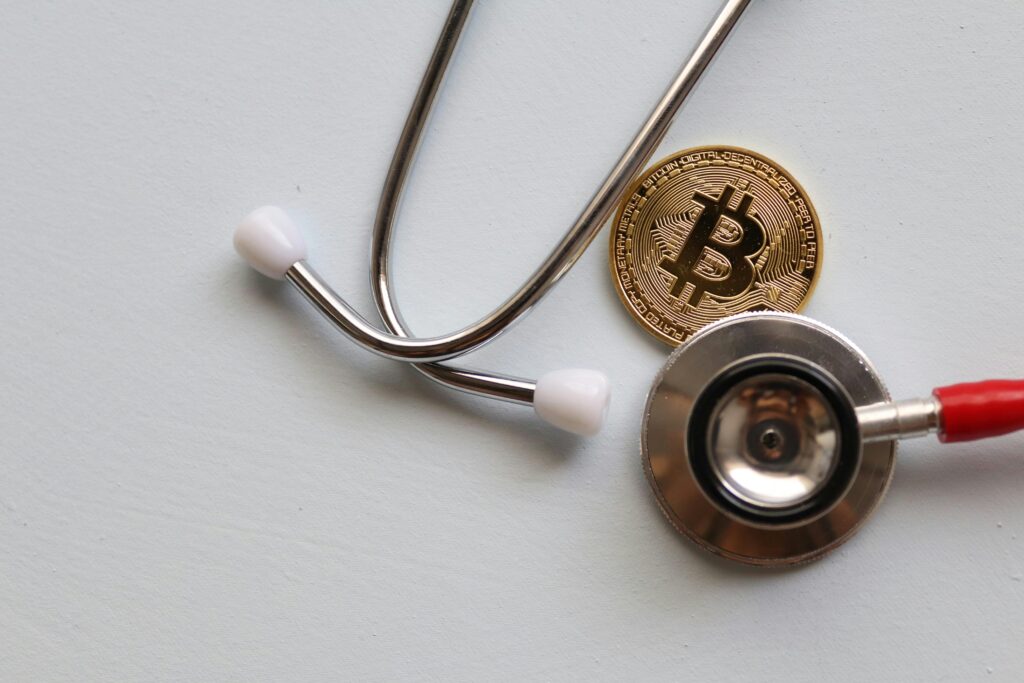Introduction
Healthcare generates massive amounts of sensitive data, but traditional systems often suffer from inefficiency, lack of security, and limited patient control. In 2025, blockchain and crypto technologies are stepping in to solve these issues. From patient records to medical research funding, the healthcare industry is experiencing a digital transformation.

1. Blockchain for Patient Records
- Patient health records are often scattered across multiple hospitals.
- Blockchain creates secure, unified, and tamper-proof medical histories.
- Patients control access, deciding which doctors or insurers can view their data.
Example: A cancer patient allowing a specialist to view their records instantly through a blockchain portal.
2. Medical Supply Chain Transparency
- Fake and expired medicines are a global threat.
- Blockchain tracks every step of a drug’s journey from factory to pharmacy.
- Increases trust, reduces fraud, and saves lives.
Example: A hospital confirming that its vaccines are genuine by scanning a blockchain record.

3. Crypto Payments for Healthcare Services
- Patients can pay for treatment with cryptocurrencies or stablecoins.
- Useful for international patients who face slow and costly bank transfers.
- Increases accessibility, especially in developing nations.
Example: A tourist paying for emergency surgery abroad using USDT.
4. Research and Funding Through Crypto
- Researchers can raise funds transparently via tokenized platforms.
- Patients and investors can directly support promising medical projects.
- Reduces reliance on slow or biased traditional funding systems.
Example: A biotech startup tokenizing shares in a new Alzheimer’s treatment trial.
5. Challenges of Crypto in Healthcare
- Regulation: Governments are strict about handling sensitive health data.
- Privacy: Blockchain records must protect patient confidentiality.
- Adoption: Hospitals and doctors may resist new systems.
Example: A clinic hesitating to adopt blockchain because of uncertain legal rules.

Conclusion
In 2025, crypto and blockchain are revolutionizing healthcare by making it more secure, transparent, and patient-focused. From tamper-proof records to transparent funding models, the technology holds huge potential. Still, widespread adoption will depend on overcoming privacy and regulatory hurdles.